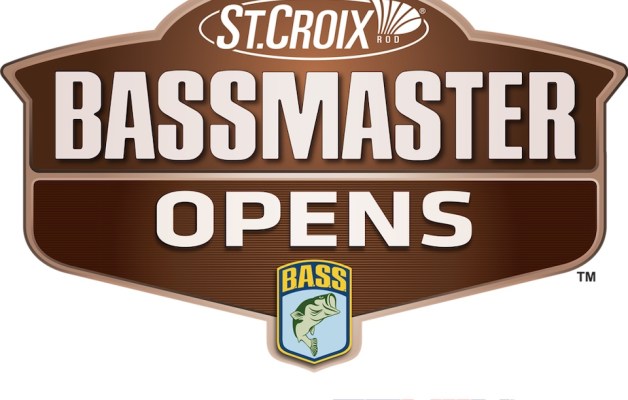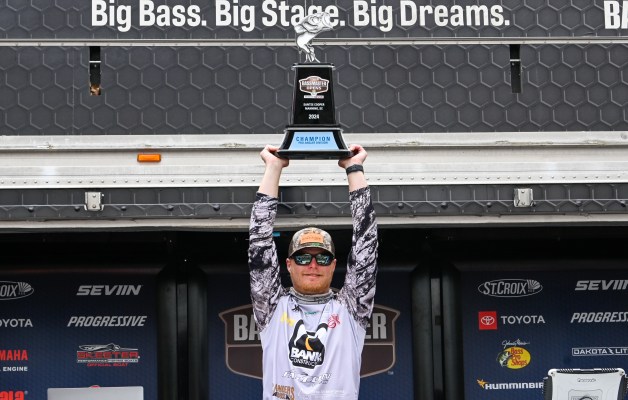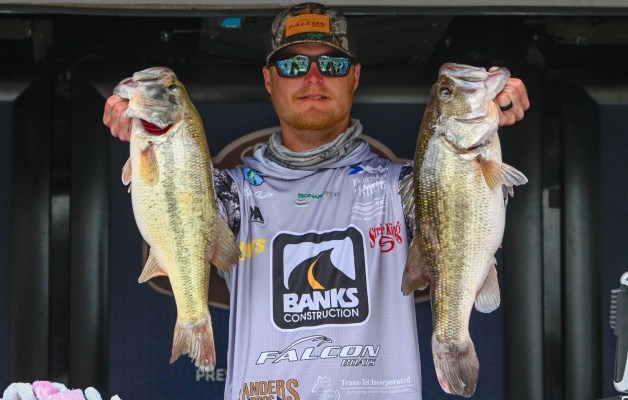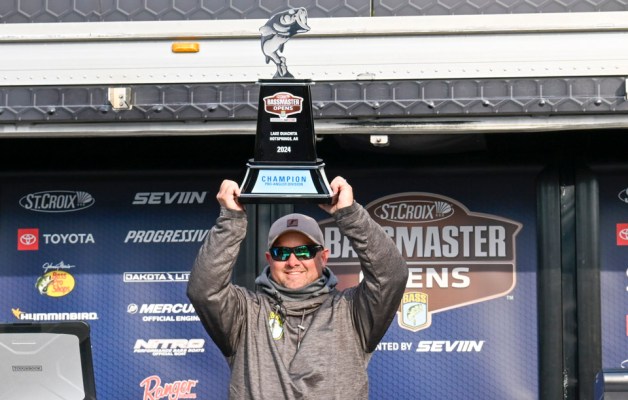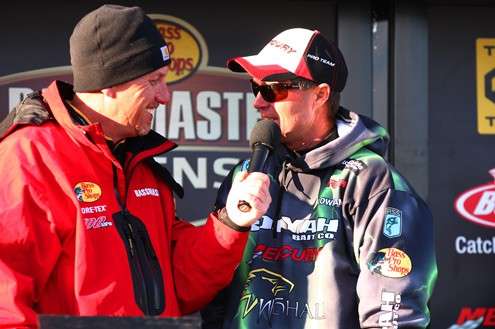
Throughout the 2012 season we will be taking a look at the heart of B.A.S.S., from the top pros to the lesser-known hopefuls, from the fans to the people behind the stage. “Why we do it” looks to celebrate the differences in the people of B.A.S.S. and the passion that brings everyone together.
Making the leap from the amateur ranks to fish against the big boys on the Elite Series can seem intimidating. That’s why tournament director Chris Bowes does everything in his power to help ease the transition for Bass Pro Shops Bassmaster Open anglers hoping to make it big.
“Some of the anglers are going to move on to the Elites, so I want to keep things consistent,” Bowes said. “From the meeting to the tournament proceedings, they will be used to it. When they get to the Elites, they will have enough on their mind – they won’t have to worry about the minutiae.”
Like many anglers across the country, Bowes’ roots are anchored strongly in the Federation Nation. He was a long-time member of the Salt City Bassmasters when he lived in Syracuse, N.Y., and when the Bass Pro Shops Bassmaster Opens came to Oneida in 2003, he was the volunteer coordinator for the event.
Working closely with then-tournament director Chuck Harbin, Bowes was introduced to the inter-workings of running a B.A.S.S. event. A year later, there was an opening and Bowes pursued it. By 2005, he was running the Opens by himself, taking on emcee duty as well.
“When I first started, I was working with all my heroes,” Bowes said. “Back then, I was a tournament angler in upstate New York and everyone wants to be the next Kevin VanDam. Now, I don’t fish any tournaments. I still do a little bit of bass fishing, but I’ve caught the whole redfish, inshore and flats bug.”
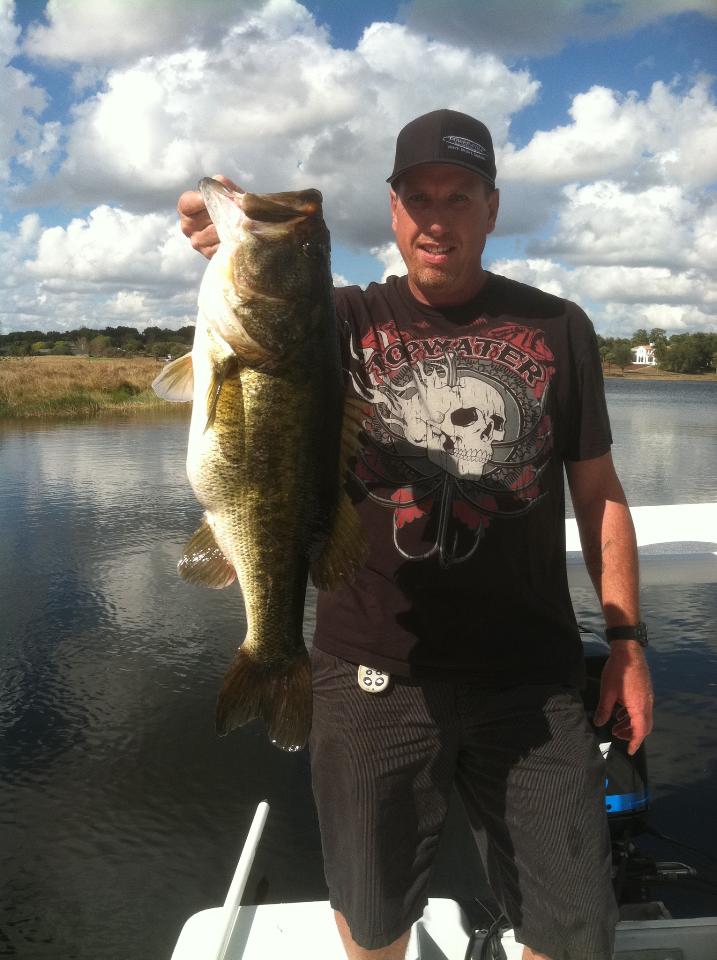 He hasn’t forgotten how to catch bass, as evidenced by the 10-pound, 2-ounce largemouth he caught shortly after the Harris Chain event concluded (right). Still, he spends most of his time on the road at events or working for B.A.S.S. near his home in Florida. His love for the sport is part of why he does it, putting so much time into creating a quality product.
He hasn’t forgotten how to catch bass, as evidenced by the 10-pound, 2-ounce largemouth he caught shortly after the Harris Chain event concluded (right). Still, he spends most of his time on the road at events or working for B.A.S.S. near his home in Florida. His love for the sport is part of why he does it, putting so much time into creating a quality product.
“This has to be a passion to put in the hours we do,” Bowes said. “Obviously, with the conditions we had this week at Lewisville, it’s really challenging. The whole B.A.S.S. staff, to put out a good product for the anglers and fans, it really is a passion.”
As the staff travels together across the country, they obviously spend a lot of time together. That leads to some family-like bonds as well as family-like hijinks.
“We talk a lot, not about the event, but about food,” Bowes said. “It always makes me laugh. We finish breakfast and the first thing someone says is, ‘Where are we going for dinner?’ It’s a road family. If you are going to spend that much time with one another, you have got to get close or it’s just not going to work.”
So why does Chris Bowes do it?
Part of the reason lies in his passion for fishing but beyond that he loves to see his passion passed down to the younger generation and watch them succeed.
“Part of why I love doing this is to see the next up and coming anglers come through the ranks,” Bowes said. “Guys like Bradley Roy and Kyle Fox moving on to become Elite Series pros. It’s really come full circle.”
Beyond just the stars, Bowes uses his enthusiasm and affability to make the experience of crossing the Open stage one everyone can enjoy.
“I really want to make the experience like their Bassmaster Classic,” Bowes said. “For a lot of these guys, this is the highest level they will make it to. They should get the same feeling as if they got onto the Classic stage, even if on a smaller scale.”
Then there is the chance to change lives.
“The Classic berth at every event has brought the eyes of the fishing community to every event,” Bowes said. “To see someone like Fletcher Shryock – perfect example of how that one week at Norman pretty much changed his life.”

